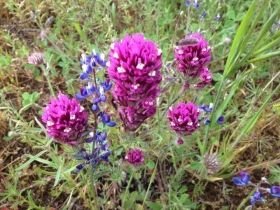More and more people are surviving cancer. Yet support for people who survive cancer and the research that underpins their care is insufficient, particularly when it comes to non-medical issues. A new special issue of the Journal of Cancer Policy, which will be published in March following the 3rd EORTC Cancer Survivorship Summit to be held in Brussels on March 1st and 2nd, shines a light on the issues and calls for more long-term research, better cross-analysis of different cancer types and better support for those who survive the disease.
articles
Fixing Damaged Ecosystems: How Much Does Restoration Help?
Across the globe, billions of dollars are spent annually on repairing ecosystems damaged by people. Forests denuded by logging. Rivers polluted by industry. Grasslands converted to agriculture.
Nature Can Reduce Pesticide Use, Environment Impact
Farmers around the world are turning to nature to help them reduce pesticide use, environmental impact and, subsequently, and in some cases, increasing yields.
Native Wildflowers Bank on Seeds Underground to Endure Drought
Native wildflowers were surprisingly resilient during California’s most recent drought, even more so than exotic grasses. But signs of their resilience were not evident with showy blooms aboveground. Rather, they were found mostly underground, hidden in the seed bank, according to a study from the University of California, Davis.
Caught On Camera: Amazonian Crop Raiders
Papped snaffling in the jungle, a striking set of photos reveal the secret lives of Amazonian crop-raiding animals.
A Bird in the Bush Equals Money in the Hand
A new study by the Wildlife Conservation Society (WCS) and Foundations of Success (FOS) finds that an ecotourism strategy based on “direct payments,” where local people are compensated for the amount of wildlife seen by tourists, has resulted in a reduction in illegal hunting and an increase in wildlife sightings.









